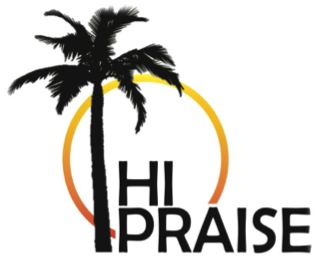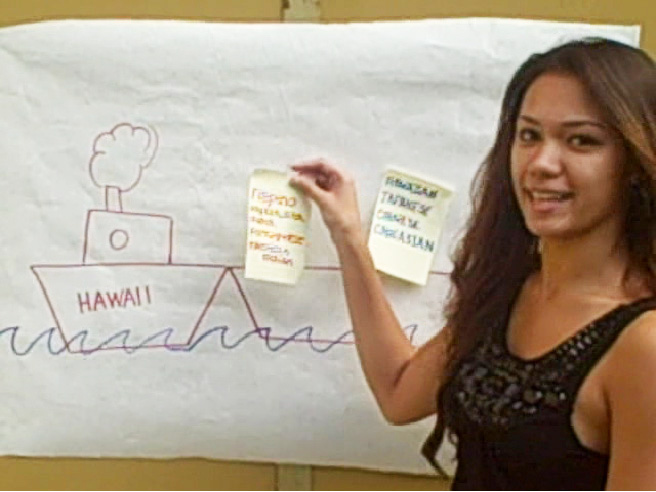Hawai'i Patient Reward and Incentives to Support Employment

Project Dates: 2011 – 2016
Funded by: Centers on Medicaid and Medicare Services (CMS)
About
The Centers on Medicare and Medicaid Services (CMS) awarded the Medicaid Incentives for the Prevention of Chronic Diseases to the State of Hawai’i ~ Department of Human Services (DHS) in September 2011. The Hawai’i Patient Reward And Incentives to Support Empowerment (HI-PRAISE) five-year project has been facilitated by the University of Hawai’i, Center on Disability Studies (UH-CDS) and the John A. Burns School of Medicine (JABSOM). This comprehensive demonstration grant sought to determine if direct incentives provided to participants with chronic disease(s) would improve biometric measures and reduce utilization of acute health care services and related cost. The overarching project objective was to test approaches that are widely available across the State, scalable, easy to access within the community, and promote self-management of chronic diseases.
This comprehensive demonstration grant sought to determine if direct incentives provided to participants with chronic disease(s) would improve biometric measures and reduce utilization of acute health care services and related cost. The project included a quasi-experimental study of 2643 participants with nine federally qualified health centers and a randomized controlled trial of 320 participants with Kaiser Permanente Hawaii.
Principal Investigators: Dr. Rebecca Rude Ozaki; Dr. Ritabell Fernandes
Primary Contact: Dr. Chuan Chinn
Team Members: Rebecca Ozaki; Ritabelle Hernandez; Dongmei Li; Chuan Chinn; Misha Morioka; Robin Arndt; Timothy Frankland; Christina Lizzi
Mission
The purpose of this research project was to find out if giving rewards for healthy behaviors will help people manage their diabetes better. The study was funded by the U.S. Centers for Medicare & Medicaid Services. The Department of Human Services received grant funding while the University of Hawai’i John A. Burns School of Medicine and Center on Disability Studies coordinated all grant activities.
Rewards were distributed for:
Improving Self-Management of Diabetes
- FSBG Monitoring, verification of BG log = ≤ 20
- Attend 1st session of diabetes management education = ≤ 20
Improving Compliance with ADA Recommended Preventive Measures
- Pneumococcal and/or Influenza vaccination = ≤ 10
Improving Compliance with ADA Recommended Treatment and Management
- Retinal eye exam (annual) = ≤ 20
- Urine for Microalbumin test = ≤ 10
- LDL Cholesterol test = ≤ 20
- HbA1c = ≤ 20
Eliminating Barriers to Healthy Lifestyle
- Attend group or individual smoking cessation class = ≤ 20
- Attend counseling for behavioral health = ≤ 20
- Weight loss of 7% in 52 weeks (persons with BMI > 25) = ≤ 50
Improving in ABCs of Diabetes
- HbA1c decrease of 1% = < 20
- HbA1c goal of < 7% = ≤ 50
- BP goal of < 140/90 = < 20
- LDL Cholesterol goal of < 100 mg/dl = < 20
Maximum Total Direct Incentives: $320 per person/year
Incentives will include, but will not be limited to:
- gift cards for business in CHC neighborhood (e.g. gas station, supermarket)
- vouchers for CHC cafeteria or open market
- tokens to trade in for higher priced items (e.g. walking shoes)
Partners
- U.S. Centers for Medicare & Medicaid Services
- Econometrica, Inc.
- IMPAQ International LLC
- RTI International
- American Diabetes Association
- Hawai’i State Department of Health
- State of Hawai’i Department of Human Services
- Hawai’i Primary Care Association
- University of Hawai’i
- Center on Disability Studies
- John A. Burns School of Medicine
Federally Qualified Community Health Centers
Materials
HI-PRAISE Project Final Report
Advisory Council Minutes
Forms
Journal Articles
- Healthy Heart, Healthy Family: A NHLBI/HRSA Collaborative Employing Community Health Workers to Improve Heart Health
- A Family and Community Focused Lifestyle Program Prevents Weight Regain in Pacific Islanders: A Pilot Randomized Controlled Trial
- Translating Diabetes Prevention into Native Hawaiian and Pacific Islander Communities: The PILI ‘Ohana Pilot Project
- Building the Base: Two Active Living Projects That Inspired Community Participation
Presentations
Resources
National
- National Diabetes Information Clearinghouse (NDIC)
- American Diabetes Association
- Food for Life for Diabetes
- DLife: For Your Diabetes Life!
- Pacific Diabetes Education Program
- Taking Control of Your Diabetes (TCOYD)
- WebMD
- National Institutes of Health (NIH)
- Centers for Medicare and Medicaid Services
- Center for Nutrition and Diabetes Management
- Joslin Diabetes Center
- SugarStats
- Academy of Nutrition and Dietetics
- Centers for Disease Control and Prevention
- Agency for Healthcare Research and Quality
- Health finder
- International Diabetes Center
State
- State of Hawai’i Department of Health
- Oahu WorkLinks
- Hawai’i Workforce Development Division
- Hawai’i State Division of Vocational Rehabilitation
- National Kidney Foundation of Hawai’i
- Real Choices
- Medical Assistance Application via Medicaid
- Financial Assistance and Food Stamp Application Form
- Unemployment Insurance (UI)

